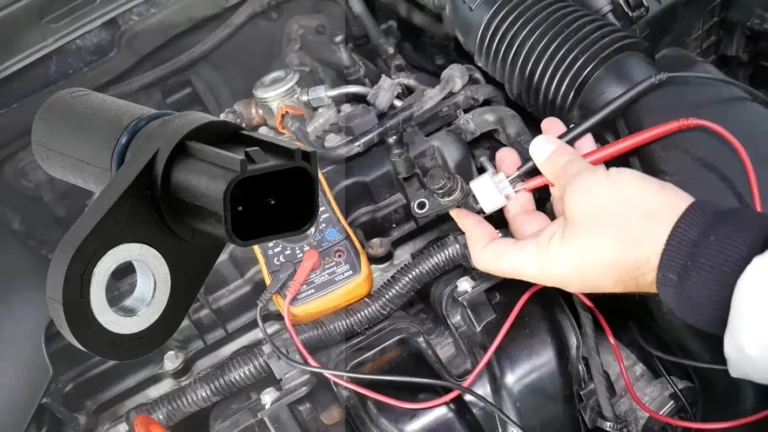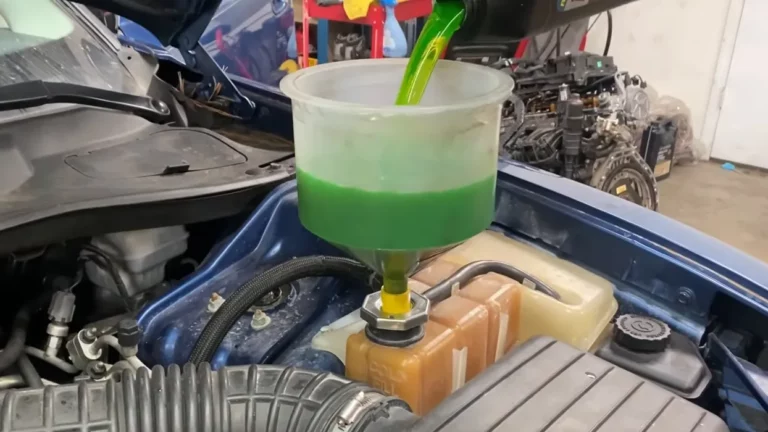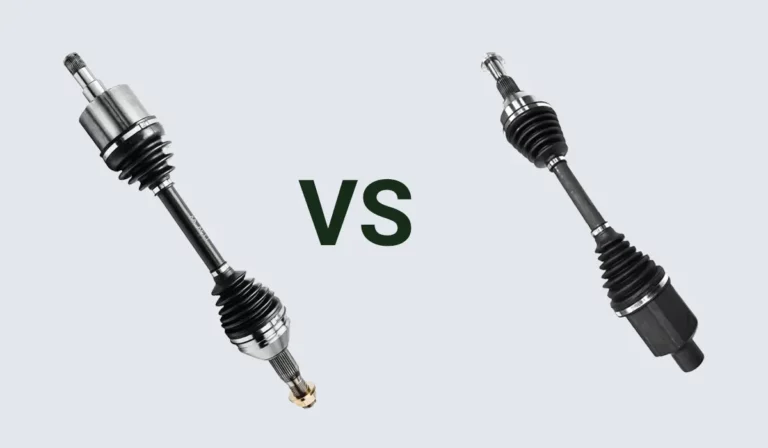Why is My RPM at 1 When Parked – Is It Normal?
RPM, or revolutions per minute, is a critical measure of a vehicle’s engine speed and performance. It indicates how well your car’s engine is functioning and can provide valuable information about potential issues with your vehicle.
Now the question is it normal RPM at 1 when parked. According to car mechanics the ideal rpm should be between .6 -1. So RPM at 1 when parked might be a problem you should check.
This article will explore why your RPM might be at 1 when parked and what steps you can take to address the issue.
Why Is My RPM at 1 When Parked? 5 Reasons
Several possible reasons range from minor to more severe problems, such as a malfunctioning sensor or a damaged engine. However, the main issues are
- Idle Air Control Valve (IACV) Malfunction
- Vacuum Leak in the Engine
- Electronic Throttle Control (ETC) System Failure
- Faulty or Dirty Mass Air Flow (MAF) Sensor
- Malfunctioning or Dirty Throttle Body
Here’s an explanation of each of the possible causes.
1. Idle Air Control Valve (IACV) Malfunction
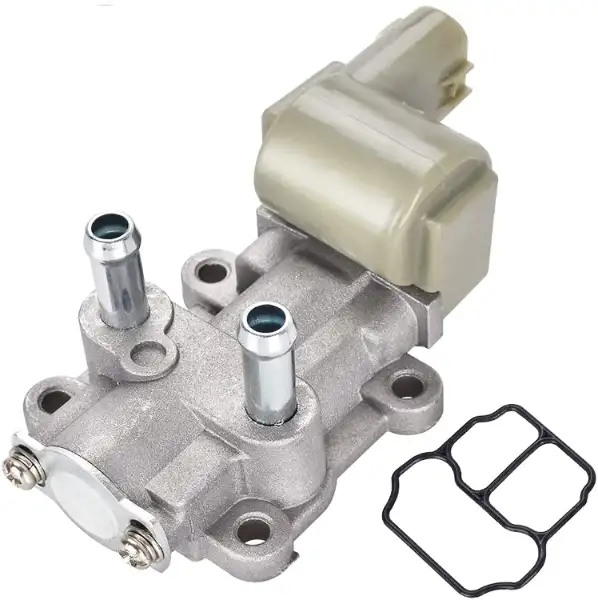
The IACV controls the engine’s idle speed by adjusting the amount of air that bypasses the throttle plate. If the IACV malfunctions, it may not be able to regulate the idle speed properly, which could cause the RPM to drop to 1 when the vehicle is parked.
2. Vacuum Leak in the Engine
A vacuum leak in the engine can disrupt the air/fuel mixture and cause the engine to idle poorly or stall. It can also cause the RPM to drop to 1 when the vehicle is parked.
3. Electronic Throttle Control (ETC) System Failure
The ETC system controls the throttle opening in response to the driver’s commands. And it may not be able to adjust the throttle opening properly if the ETC system is nonfunctional. This could cause the RPM to drop to 1 when the vehicle is parked.
4. Faulty or Dirty Mass Air Flow (MAF) Sensor
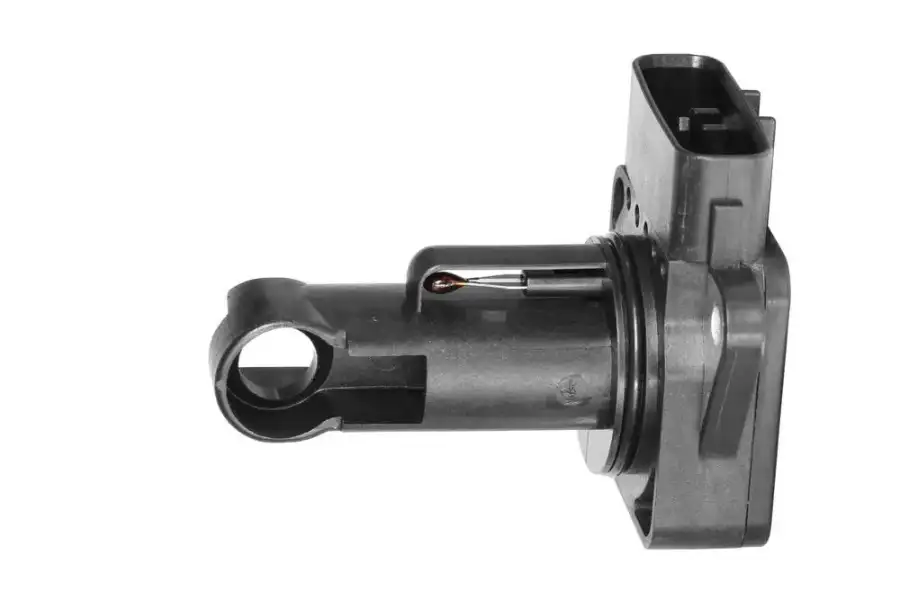
The MAF sensor measures the air entering the engine and sends this information to the engine control module (ECM).
If the MAF sensor is faulty or dirty, it may send incorrect information to the ECM and this could cause the RPM to drop to 1 when the vehicle is parked.
5. Malfunctioning or Dirty Throttle Body
The throttle body regulates the air entering the engine. If the throttle body is malfunctioning or dirty, it may not be able to regulate the air properly, which could cause the RPM to drop to 1 when the vehicle is parked.
Others Signs of RPM Issue When Parked
Here are some common symptoms of high RPM when parked.
Vehicle Vibrations or Shaking
High RPM when parked can cause the engine to vibrate or shake the entire vehicle. This can be felt in the steering wheel, seats, and dashboard.
The severity of the shaking can vary, depending on the cause of the high RPM.
Difficulty Accelerating or Starting the Car
When the engine runs at a high RPM, even when parked, it may be difficult to accelerate or start the car. This can be due to a malfunctioning engine component, such as the throttle body or fuel injectors.
Check Engine Light (CEL) Illumination
When the engine runs at a high RPM, even when parked, it can trigger the Check Engine Light (CEL) on the dashboard. This is the vehicle’s way of telling you that a problem needs to be addressed.
Other warning lights, such as the oil pressure or battery warning lights, may accompany the CEL.
How to Diagnose the Cause of RPM at 1 When Parked?
Here are some guidelines on how to diagnose the cause of this issue.
Use of OBD-II Scanner to Read Error Codes
- Connect the OBD-II scanner to the car’s diagnostic port, usually located under the dashboard on the driver’s side.
- Turn on the car’s ignition and start the scanner.
- Check for any error codes displayed on the scanner’s screen. These codes can provide valuable information about the problem.
Inspection of IACV, ETC System, MAF Sensor, and Throttle Body
- Inspect the IACV (Idle Air Control Valve) to see if it’s stuck or dirty. A faulty IACV can cause the engine to idle at a constant RPM.
- Inspect the ETC (Electronic Throttle Control) system to ensure it’s functioning correctly. A faulty ETC system can also cause the engine to idle at a constant RPM.
- Check the MAF (Mass Air Flow) sensor to see if it’s dirty or malfunctioning. A dirty MAF sensor can cause the engine to idle poorly.
- Inspect the throttle body to see if it’s dirty or malfunctioning. A faulty throttle body can cause the engine to idle poorly.
Use of Smoke Test to Check for Vacuum Leaks
- Perform a smoke test to check for vacuum leaks in the engine. A vacuum leak can cause the engine to idle poorly.
- Connect a smoke machine to the car’s intake system and pressurize it.
- Check for any smoke escaping from the engine. Smoke escaping from the engine indicates a vacuum leak.
How to Fix RPM at 1 When Parked?
Here are some possible solutions.
1. Cleaning or Replacement of IACV, MAF Sensor, and Throttle Body
A dirty or faulty IACV, MAF sensor, or throttle body can disrupt the proper airflow and cause irregular engine RPM. To fix this, you can clean or replace these components to restore adequate airflow and idle RPM.
2. Repair of a Vacuum Leak in the Engine
A vacuum leak can cause engine air/fuel ratio problems, affecting idle RPM. A vacuum leak occurs when an unintended opening in the engine’s vacuum system allows outside air to enter the system. A damaged or cracked vacuum hose, gasket, or seal can cause this.
You can fix this issue by locating and repairing any vacuum leaks in the engine.
Get more insights on how to test and check for vacuum leaks from this video.
3. Replacement of Faulty ETC System Components
The ETC (Electronic Throttle Control) system controls the engine’s RPM. Any faulty components in this system, such as a damaged throttle position sensor, can cause issues with the engine’s RPM. You can fix this issue by replacing faulty ETC system components.
4. Resetting the Vehicle’s Computer
Sometimes, the issue with RPM can be caused by a glitch or error in the vehicle’s computer. You can fix this issue by resetting the computer, clearing error codes, and restoring the vehicle’s default settings.
This process will vary depending on the vehicle’s make and model, so consult the owner’s manual or a qualified mechanic for instructions.
Check out this YouTube video on how to reset your vehicle’s computer.
Frequently Asked Questions (FAQs)
Some of the most common questions include the following.
Can a Low Battery Cause the RPM to Stay at 1?
It’s unlikely that a low battery would cause the RPM to stay at 1, but it could cause other issues with your vehicle’s electrical systems.
Is It Safe to Drive My Car if the RPM Is Stuck at 1?
It’s not recommended to drive your car if the RPM is stuck at 1, as this could indicate a severe problem with your vehicle’s engine or electrical systems.
How Much Does It Cost to Fix an RPM Issue?
The cost of fixing an RPM issue will depend on the underlying problem and the make and model of your vehicle. Getting an estimate from a mechanic before agreeing to any repairs is best.
Conclusion
An RPM reading of 1 when parked may indicate a problem with the vehicle’s idle control system. It could be caused by a faulty sensor or a malfunctioning component within the engine. It is important to have the vehicle inspected by a qualified mechanic to diagnose and address the underlying issue.
Ignoring this issue could lead to further damage to the engine or other components of the vehicle. We recommend regular maintenance and prompt attention to any unusual behavior or symptoms to help ensure the vehicle’s longevity and safe operation.

